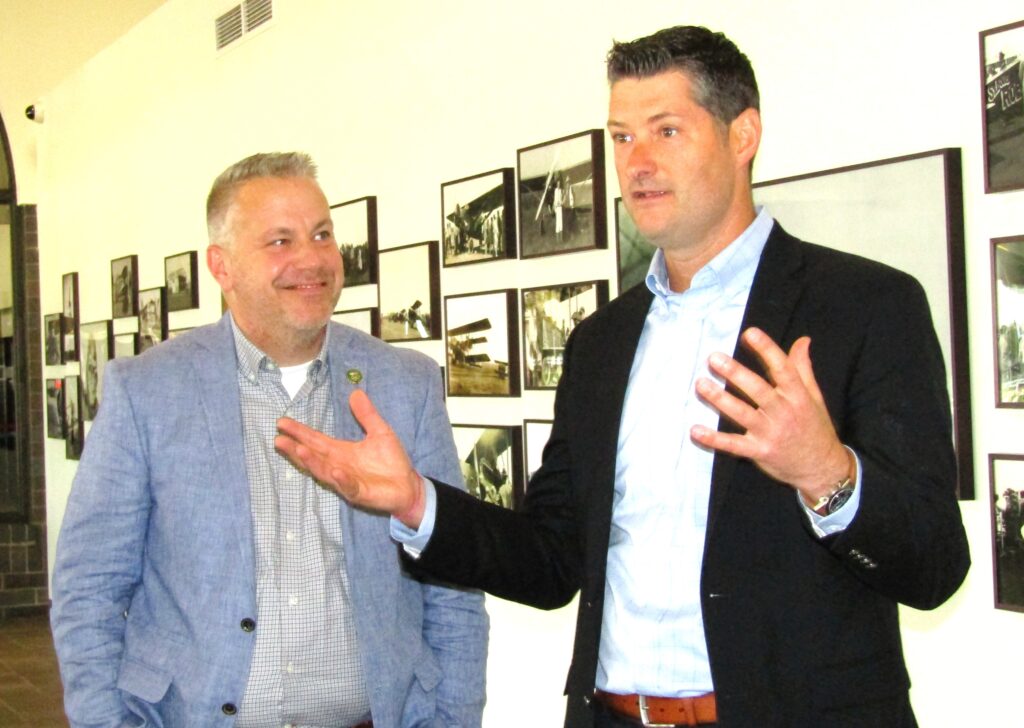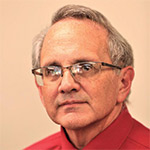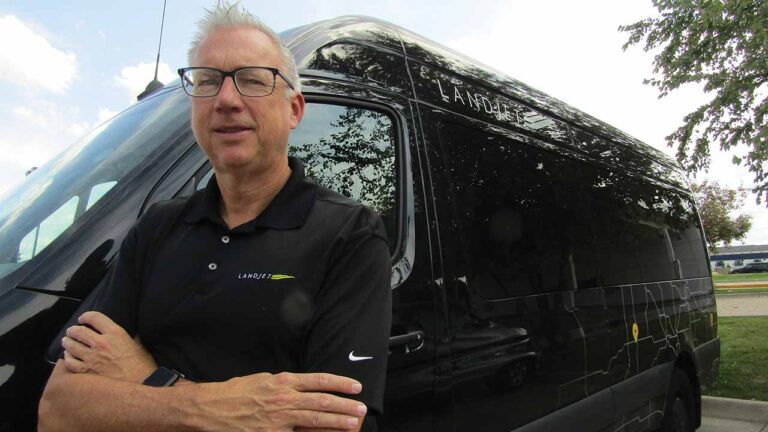
U.S. Rep. Eric Sorensen, D-Moline, left, and Ben Leischner, executive director of the Quad Cities International Airport, discuss the possibility of the airport being home to a spaceport in the future. Mr. Sorensen went on a tour of the airport on Monday, Oct. 9, 2023. CREDIT DAVE THOMPSON
The Quad Cities International Airport could one day be home to a spaceport that is used to launch and receive jet-like spacecraft from runways, deliver cargo to orbit and even help with a mission to Mars.
That’s the vision of airport and congressional leaders who want the local airport to be on the cutting edge of technology and part…

Want to Read More?
Get immediate, unlimited access to all subscriber content and much more.
Learn more in our subscriber FAQ.
Do you want to read and share this article without a paywall?







